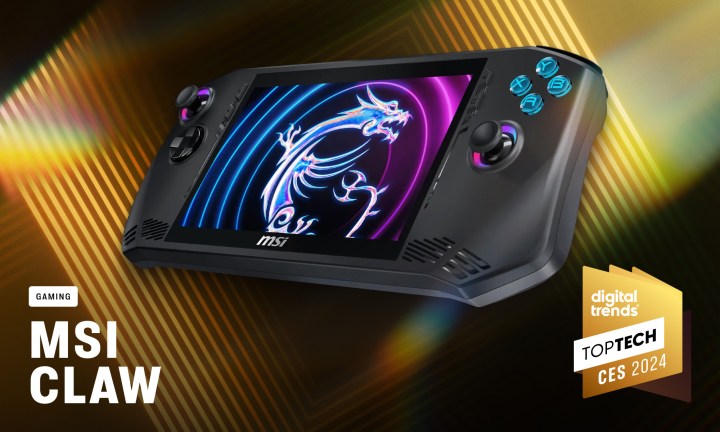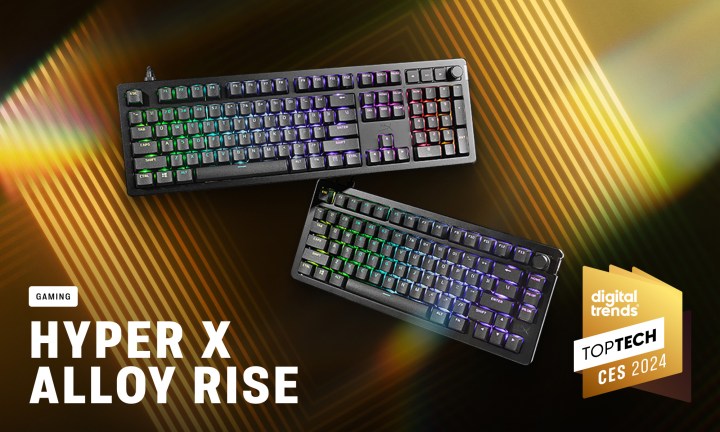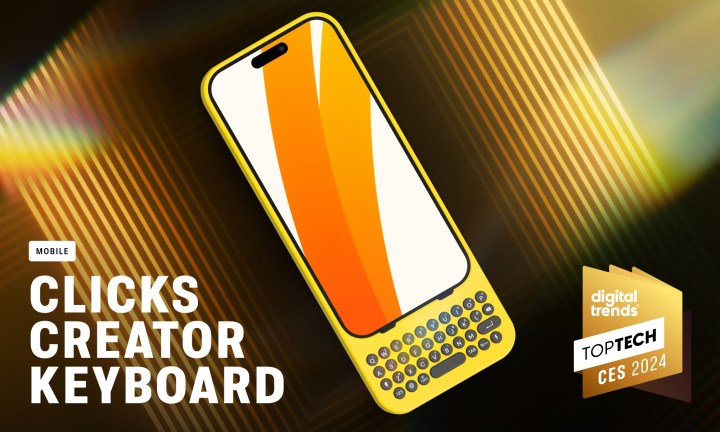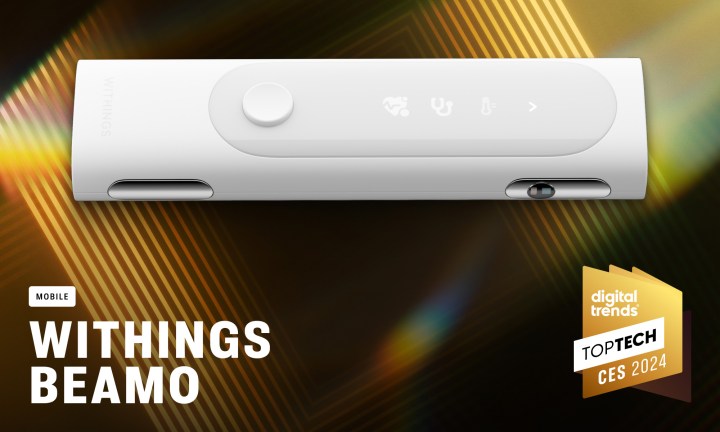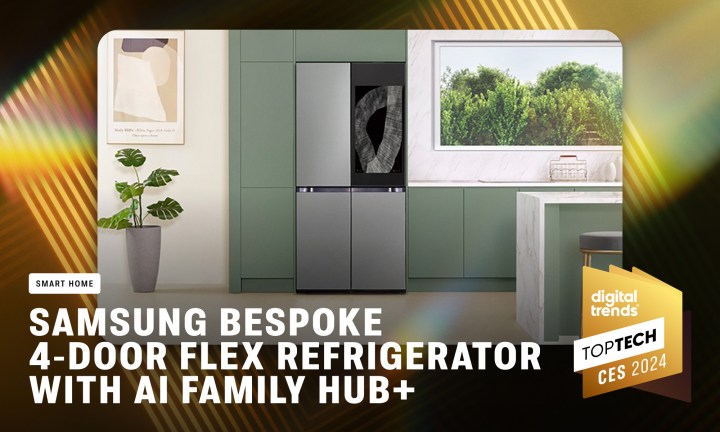It’s hard to explain the feeling and energy surrounding CES. There are fresh ideas and new products everywhere you turn. With so much happening, and thousands of companies competing for attention, manufacturers have to do something really intriguing to have any chance of standing out. But it’s possible – every year we recognize a group of products that are truly compelling and will help move the industry forward.
These are our Top Tech of CES 2024 awards, recognizing the best and most innovative announcements at the show.
Audio/Video

LG Signature OLED T
While LG Display has been showing off its transparent OLED screens for several years, it wasn’t until 2024 that its sister company, LG Electronics, figured out how to turn it into a functional TV. We think it was worth the wait.
The genius is in the simplicity of LG’s solution, taking what was once a purely commercial technology and transforming it into a home entertainment showpiece. Whether it’s something you’ll be able to afford anytime soon is still unknown, but it’s transformative consumer tech nonetheless.
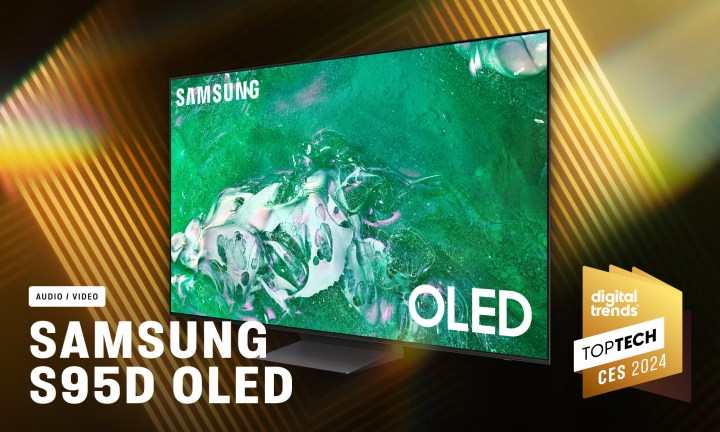
Samsung S95D QD-OLED
Samsung’s top-tier QD-OLED model already was one of the must-have TVs among premium displays, but two improvements to the S95D announced at CES 2024 make it even more desirable than before.
First, all of Samsung’s QD-OLED TVs benefit from new, brighter panels developed by Samsung Display, including the S95D. Second, and more important to those actually purchasing the TV, is that the flagship model now comes with the most remarkable antiglare system we’ve seen implemented on a television.
It appears to not rely solely on a matte screen finish, but on an internal layer that seems to absorb light. If you’ve ever used an OLED TV and dealt with the reflections that come with it, you’ll know how big a deal this is.
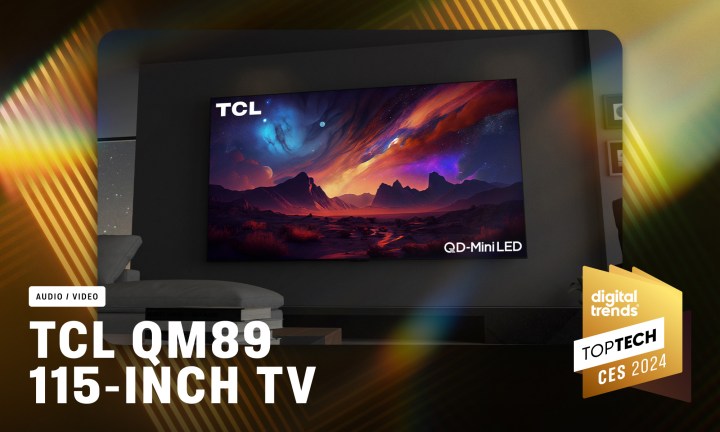
TCL QM89 115-inch QLED TV
After seeing plenty of success with its 98-inch models in 2023, TCL decided to lean into large. It will soon be selling the largest consumer television North America has ever seen. Behold, the 115-inch QM89.
It’s a QD-mini LED television. It’s massive. But the new QM89 series won’t just be huge, as it’s boasts other top-notch specs, including claimed peak brightness of 5,000 nits, and a whopping 20,000 zones of local dimming.
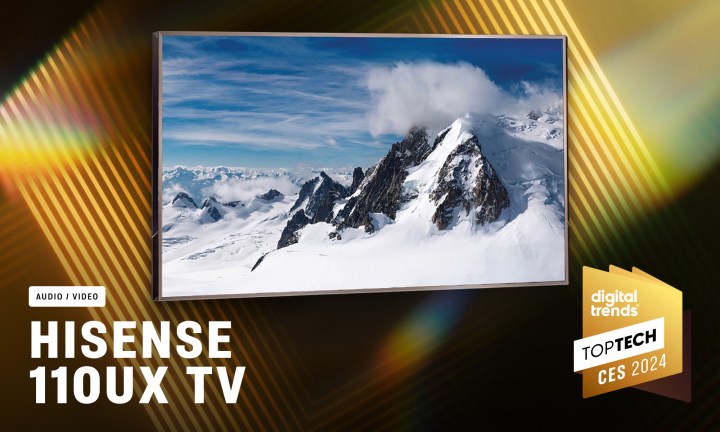
Hisense UX 110-inch TV
TCL brought the biggest, but Hisense brought the brightest. The 110-inch Hisense UX is reportedly capable of generating a mind-boggling 10,000 nits of peak brightness, with 40,000 local dimming zones. It’s not quite brighter than the sun, but it’s definitely getting there.
And given Hisense’s history of underpromising and overdelivering, we won’t be surprised if it gets even brighter than claimed. Even if it doesn’t, it definitely stood out not just at Hisense’s CES booth, but among all the televisions at the show.
Cars
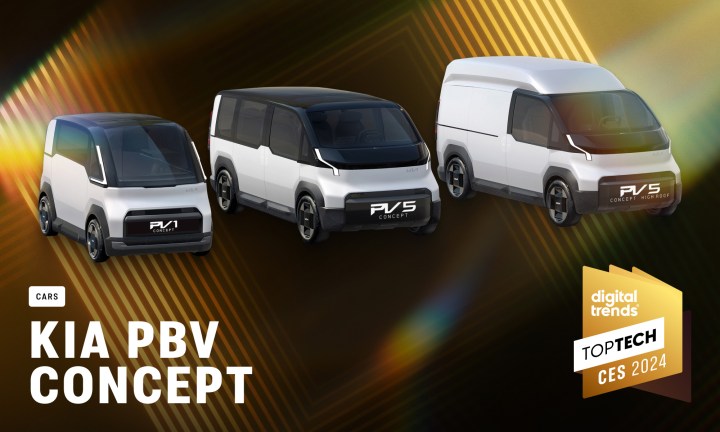
Kia PBV Concept
Kia has been one of the most influential companies in terms of the transition to EVs, and it’s done so with a relatively traditional approach to design and a focus on affordability. The PBV Concept shows it’s ready to also take a fresh step into a futuristic vision of what vehicles can be.
The PBV (Platform Beyond Vehicle) isn’t so much a vehicle as it is a set of design principles and ideas for a wide range of vehicles that will purpose-built for various use cases. It upends the idea that cars all need to generally look like, well, cars – and instead looks at how we could take a blank-slate approach. Taxis that have optimized seating layouts and doors, work vans with useful interior layouts, and a wide variety of size options make this a truly versatile platform.
Modular and easy-to-build layouts, external informational displays, and the incorporation of accessibility features are all the little touches that make the PBV Concept so interesting.
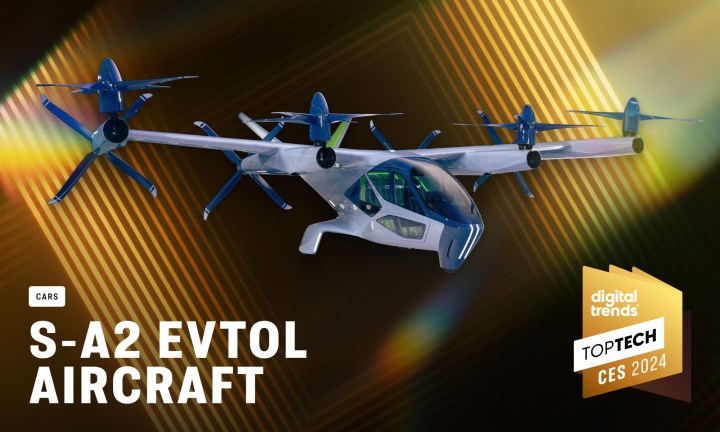
Supernal S-A2 EVTOL aircraft
It’s possible to become numb to spectacle at CES, but the towering Supernal S-A2 is enough to make even the grouchiest curmudgeons crane their heads and take notice. With both wings and eight pivoting rotors, this electric aircraft will take off vertically and hit up to 120 miles per hour as it ferries up to four passengers above urban traffic.
Yes, it’s still just a concept. But Supernal plans to begin flying these aircraft in 2028, and with the backing of Hyundai Motor Group and more than 600 employees already, we don’t think that’s just a pipe dream.
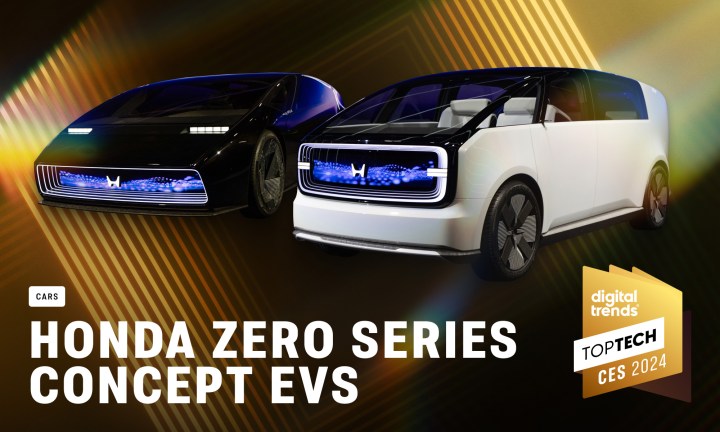
Honda 0 Series concept vehicles
After years of foot-dragging on electric vehicles, Honda made the wait worthwhile at CES 2024 by unveiling two EV concepts that look straight out of Blade Runner. As the 0 Series name implies, both concepts are intended to be a fresh start for Honda’s electric ambitions.
The Space Hub is a futuristic van, while the Saloon is a wedge-shaped four-seater that could pass for a supercar. Both have the batteries situated below the floor, and Honda claims they’ll be able to charge from 15% to 80% in just 10 to 15 minutes. While we know better than to expect the production versions to look just like these early versions, we won’t have to wait long, as Honda intends to begin selling them in 2026.
Computing

Nvidia RTX 4080 Super
PC components don’t often get the limelight at CES, and for good reason. We need a chance to thoroughly test the hardware before throwing an award at it. The RTX 4080 Super is a rare exception. Built on the back of Nvidia’s RTX 4080, this new Super refresh boosts the specs just a bit, which should provide a minor performance improvement over the base model.
That’s not what’s important here, though. It all comes down to price. Nvidia has taken a lot of flak over the past couple of generations for driving GPU prices up, but the RTX 4080 Super actually brings prices down. Nvidia is selling the card for $1,000, and although that’s expensive, it’s far more reasonable for gamers on the hunt for peak performance.

Asus ROG Zephyrus G14
The ROG Zephyrus G14 has been leading a revolution in compact gaming laptops ever since its original launch. In 2024, though, it just took a huge step forward once again. In a year when there wasn’t exciting new silicon for gaming laptops, Asus focused on a redesign of the G14 that evolves it in a logical manner.
The G14 this year is significantly thinner and more modernized, adding a much larger touchpad and a more refined look. It still has a gaming focus, but this is a more successful mainstream crossover laptop than even the Razer Blade at this point. Throw in an impressive OLED screen and you have a gaming laptop that the rest of the competition is going to be chasing all year.
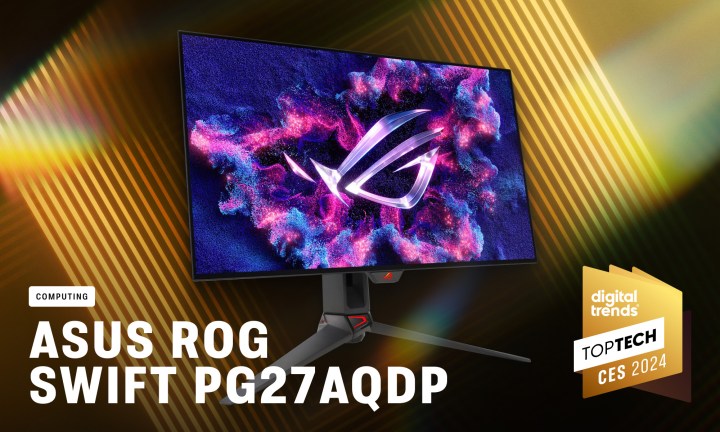
Asus ROG Swift PG27AQDP
CES was all about OLED gaming monitors, but Asus was the only company that stood out with its offering. The PG27AQDP is the only OLED display we saw at the show boasting a 1440p resolution and a staggering 480Hz refresh rate. Just last year, we saw OLED displays only doing half of that refresh rate.
It looks like Asus has some sort of exclusive claim to this panel, at least for a bit. It’s by far the fastest OLED gaming monitor we’ve ever seen, and at a resolution that gamers have been begging for. Asus is also making bold claims on brightness, and pushing OLED to places it has never gone before.
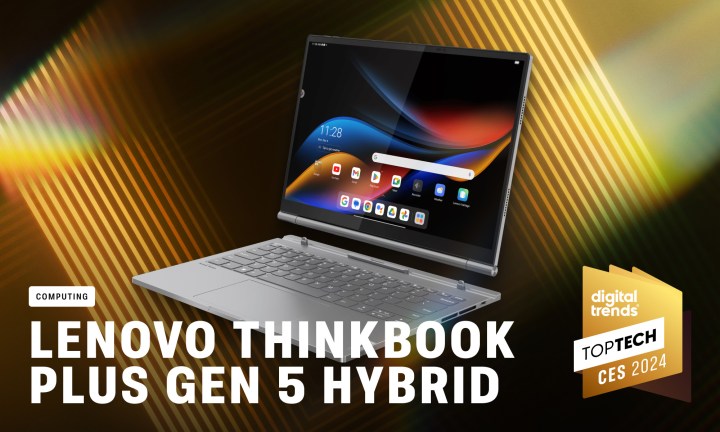
Lenovo ThinkBook Plus Gen 5 Hybrid
Calling this a 2-in-1 feels like an understatement. The ThinkBook Gen 5 Hybrid combines two separate computers in a single machine — one an Android tablet and one a Windows 11 laptop. In other words, the screen can be yanked right off the base of the laptop and used as a 14-inch Android tablet, complete with its own Snapdragon processor, memory, battery, storage, and camera.
But that’s just the start. You can also do things like access shared files between them, switch between Android and Windows at the press of a button, or run the whole Android tablet in a window. You can even connect the base of the laptop up to an external monitor to run Windows while using the Android tablet separately. That’s just plain neat. Thanks to how poorly Windows 11 still handles tablet mode, this feels like the best of both worlds — and I can’t believe it’s the first time it’s been done.
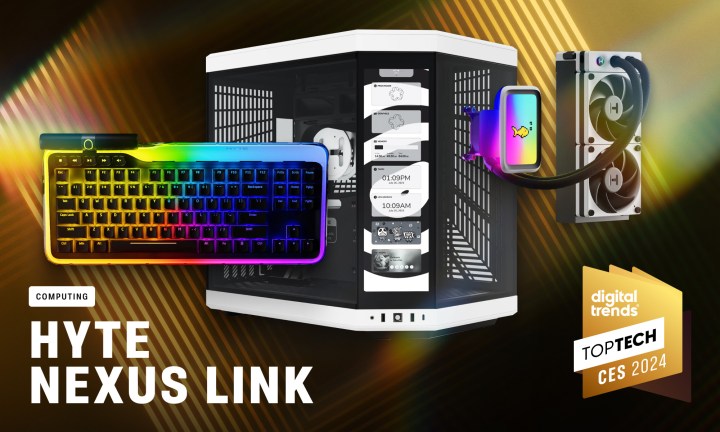
Hyte Nexus Link
Hyte is quickly becoming the little PC company that could. It earned the right to create its own PC ecosystem platform, the Nexus Link. It’s far more than just a tip to die-hard Hyte fans though – it’s a true innovation in its own right. With a single connection, you can daisy-chain together up to 18 separate devices to your PC to both clean up your system and centralize control.
Starting with Hyte’s first all-in-one liquid cooler, you can then chain together multiple “nodes” in the Nexus Link chain through either a Type-M or Type-C connection, strung together in one beautiful line of PC glory. It’s not the first time we’ve seen this done, but the ability to connect up to 18 devices makes it possible to run an entire PC on this one ecosystem, all controlled through the Nexus software.
Gaming
MSI Claw
With heavy hitters like Sony staying quiet this year, MSI got to take center stage with its Steam Deck rival, the Claw. At first glance, it might not seem all too different from devices like the Asus ROG Ally. It certainly doesn’t have any of the flashy features of the Legion Go, either. However, MSI’s portable PC stands out where it really counts: power and performance.
Rather than using the Ryzen Z1 Extreme like other recent devices, the MSI claw opts for Intel’s fresh Core Ultra 7 155H instead. That 16-core chip opens the door for some impressive gaming potential. On the show floor, we were able to play Assassin’s Creed Mirage, a major new release that just launched a few months ago. Combine that with built-in Intel XeSS support and a 120Hz IPS display, and you’ve got a very capable, Windows-powered handheld.
Weak batteries are the Achilles’ heel of just about every device of this type on the market today. But the MSI Claw could wind up being the longest-lasting one thanks to its 53 watt-hour battery, which is theoretically 25% better than what’s in the Legion Go. That, combined with a mesh vent cooling system that seems to keep the system fairly quiet, could make it an ideal portable device.
HyperX Alloy Rise
It’s not always the flashiest or most expensive products that catch our eye at CES; sometimes, it’s the simple things that get our attention. That was the case this year with the HyperX Alloy Rise, a customizable mechanical keyboard that could become a new go-to for PC gamers. Like similar keyboards, it features hot-swappable keys that are easy to get on and off, but its real advantage comes down to what those switches sit on. The Alloy Rise uses a gasket mounting system, which gives the entire thing a more premium feel.
What’s especially exciting is its seamless customization potential. In addition to letting players swap out switches, the Alloy Rise’s aluminum shell can be popped off and swapped with a new one in a matter of seconds. That might not sound impressive, but it’s a major improvement over keyboards like the GMMK Pro, which can take 45 minutes to customize. By comparison, the Alloy Rise can get a full makeover in an instant, potentially making it the most convenient option on the market for those who love changing their style to match whatever they’re playing.
Mobile
Belkin Auto-Tracking Stand Pro
CES 2024 showed us one of the coolest iPhone accessories we’ve seen in ages: the Belkin Auto-Tracking Stand Pro. It kind of looks like a wireless iPhone charger — and it kind of is! When you put your iPhone on the Stand Pro, the MagSafe pad wirelessly charges it at 15 watts. But that’s only the beginning.
When your iPhone is on the Auto-Tracking Stand Pro, you open the camera to begin the magic. The camera automatically locks on to your face and follows you around with 360 degrees of motion and 90 degrees of up-and-down tilting. Whether you’re recording a TikTok video, having a FaceTime call with your family, or are on a Microsoft Teams call, you can move around however you want while still staying in frame. It works with your iPhone’s selfie and rear cameras, and you can even use the Stand Pro completely wirelessly with up to five hours of battery life.
Does everyone need Belkin’s Auto-Tracking Stand Pro? Probably not. But it’s a fascinating feat of engineering, and it’s easily one of the coolest mobile gadgets we saw at CES 2024.
Clicks Creator Keyboard
Speaking of interesting iPhone accessories, we have to talk about the Clicks Creator Keyboard. From the back, it looks like any other iPhone case, just a bit longer than usual. Look at Clicks from the front, however, and you’ll find a full physical keyboard.
Virtual keyboards have gotten really good, but there are some genuine benefits you get with a physical keyboard for your iPhone. You get more screen real estate when you’re typing, you can use keyboard shortcuts to perform actions in certain apps, and you can have a tactile, physical typing experience. Clicks gives you all of this, and based on our brief hands-on time with it, it seems to do it all quite well.
The Clicks Creator Keyboard is already available for preorder for a handful of different iPhone models, with more phones joining soon. It’s quirky, a bit odd, surprisingly useful, and something we can’t wait to try out again soon.
Withings BeamO
One of the best things about CES is seeing unusual gadgets that solve legitimate problems — and that’s precisely what Withings has delivered with the Withings BeamO.
The BeamO is a small handheld device that sort of looks like an Apple TV remote. But this isn’t a gadget for scrolling Netflix or Hulu. Instead, the BeamO is equipped with an electrocardiogram (ECG) reader, oximeter, stethoscope, and thermometer. In other words, you have all the tools you need to keep track of your heart and lung health, plus your temperature.
Health gadgets aren’t anything new, but what’s particularly remarkable about the BeamO is how refined it is. The design looks fantastic, your health data is presented on a small LED screen, and you can also view it in greater detail on the Withings mobile app. Withings has been on a roll for a while in the health tech field, and the BeamO is a sure sign that’s not stopping any time soon.
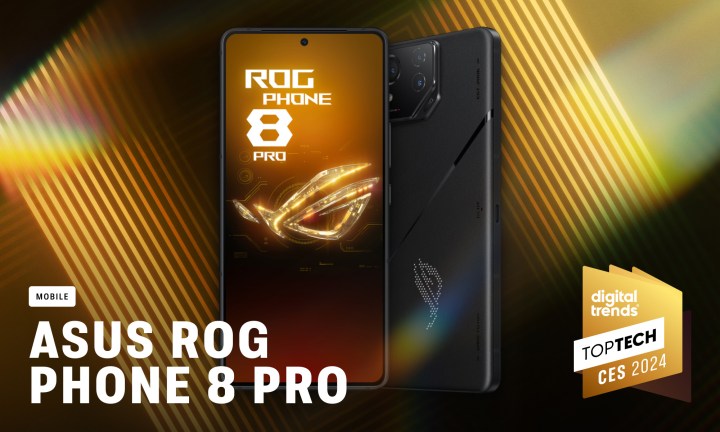
Asus ROG Phone 8 Pro
Smartphones haven’t been a big aspect of CES for years, but that doesn’t mean there weren’t any phones to find at CES 2024. In fact, one of the phones announced at this year’s show — the Asus ROG Phone 8 Pro — has us really excited.
What’s particularly interesting about the ROG Phone 8 Pro is how different it is from its predecessors. It’s still a big phone with the latest processor and a huge amount of RAM and storage. Asus is also still marketing it as a gaming phone, but it doesn’t really look or feel like one. Gone is the big, bulky, obnoxious design of previous ROG Phones. Instead, the ROG Phone 8 Pro is much sleeker and stealthier while still retaining some unique design elements — namely AirTriggers for extra controls while gaming, plus a mini LED display on the back.
This makes the Asus ROG Phone 8 Pro a more practical alternative to the big flagship phones from Samsung, Google, OnePlus, and others. It’s an unexpected shift from Asus, but it’s one we also think will pay off.
Smart Home
Samsung Bespoke 4-Door Flex Refrigerator with AI Family Hub+
If you’ve ever slogged through recipe sites on a Tuesday night trying to find a way to whip up dinner with whatever you have on hand, you’ll appreciate what we think is one of the most genuinely useful AI applications at CES 2024.
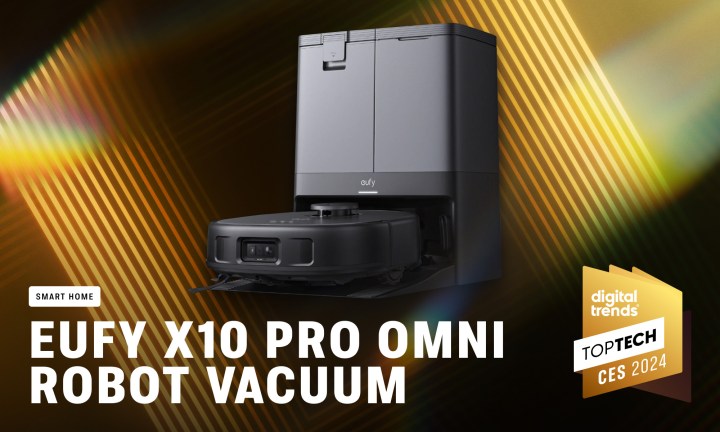
Eufy X10 Pro Omni robot vacuum
It’s tempting to focus our CES awards exclusively on sparkly concepts, but Eufy made our jaws drop based on something else: value. The $799 X10 Pro Omni boasts almost all the same features as robot vacuums that cost twice as much. That means you get vacuuming and mopping, plus a dock that handles automatic emptying, refilling, and even mop drying to prevent the funk we’ve experienced with earlier robot mops.
All that comes at a price that just a few years ago would have been lucky to snag you a competent vacuum alone. And it will be available February 20. This is one we can’t wait to get our hands on for review.
Editors’ Recommendations


